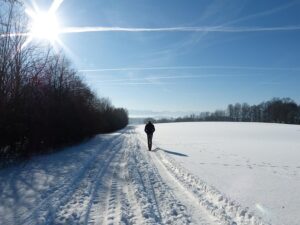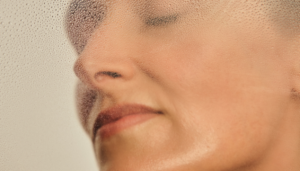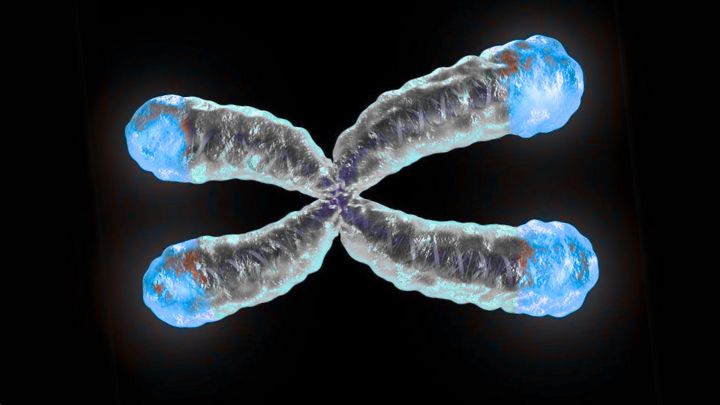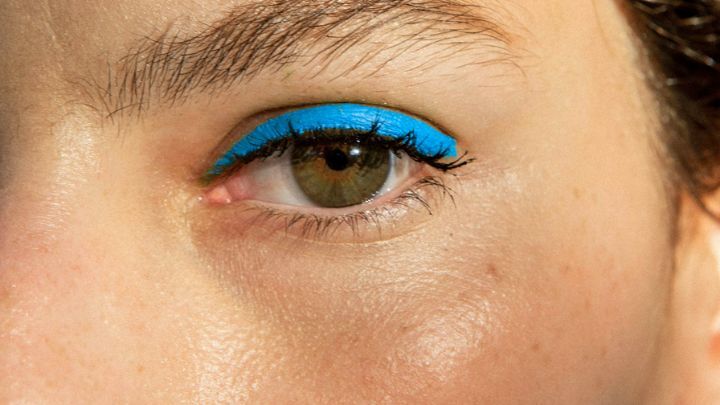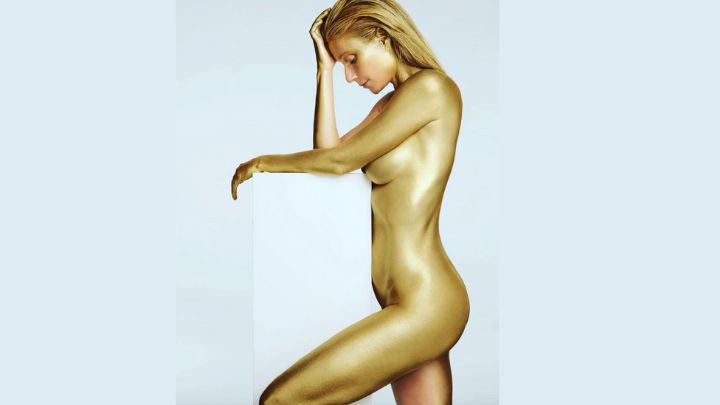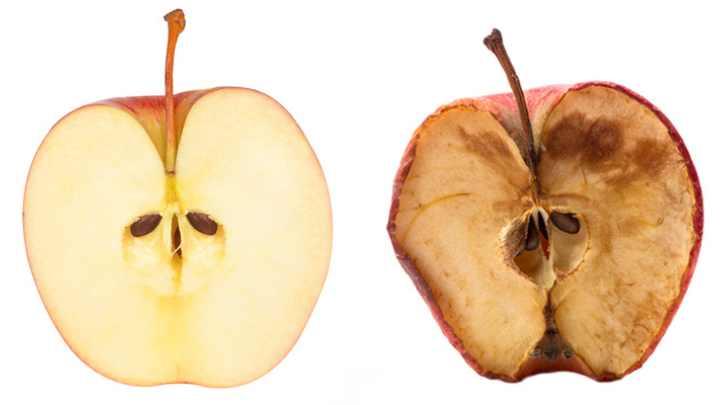It’s 2023. By 2050, there will be 2.1 billion people aged 60 years and older and 426 million people aged 80 years or older, which is triple the current number.
WHO
Ageing, currently, is thought to be a normal part of life. Many also believe that growing old means welcoming age-related pain and drawbacks.
Sure, your genes can predispose you to certain age-related diseases, but these genes are not set in stone. They’re switched on and off regularly but, you, are in fact in control.
Latest scientific findings suggest that about 80% of our health in old age is predicted to be in our own hands.
In this article
Free guide to reverse your biological age

- Master the science of rejuvenation.
- Apply proven tips to turn back the clock.
- Transform your health with top longevity specialists.
Assumptions on ageing
Recent research on ageing allows the possibility to move beyond narratives that tend to be restrictive, overgeneralised, or no longer valid.
In June 2018, the World Health Organisation (WHO) added ageing to the 11th edition of its International Classification of Diseases. Since then, the longevity field has been booming, with many people putting their health as their number one priority to live a better life.
Philosophical aspect of ageing
When it comes to ageing, one wonders about the meaning and purpose of life. There’s the acceptance of mortality or the fear of death. The impact of ageing on personal identity or self-worth. How ageing plays a role in the search of wisdom or spirituality. The ethics and philosophical implications of prolonging the human lifespan. The role of ageing in the cycle of life itself.
But when we look at the bigger picture, we understand that longer, and more productive lives for our and the future generations are inevitable. The old rules of ageing must thus be reevaluated.For instance, as a society,
- When or until when we are being educated?
- When do we get married or have children?
- How long do we work for?
- How do we spend youth, middle, and old age?
- What does the new society look like?
- How do we restructure mindsets for older societies?
Taking a step down the evolutionary lane
Around the world, people can now expect to live longer, healthier lives than in previous generations. Better healthcare systems caused rising life expectancy that allowed the industrial revolution to occur. It had risen only 0.05% per year between 1000 to 1800 – increasing life expectancy from 24 years to 36 years. But by 1900, life expectancy rose to 46 years, and today, it is around 80 years.
The concept of childhood and ageing would have been unimaginable in the 1700s.
Historically,
- Increased life expectancy meant adults could learn from experience and pass it on to their children via education.
- By 1900, the concept of ‘childhood’ was becoming widely accepted.
- Along with childhood, another key development as a result of rising life expectancy was the concept of old age.
Understanding ageing
Life is all about the fluid state of ‘’becoming’’, a concept that cannot be caged. Ageing is a human attribute that should be understood to encounter inevitable changes of life more efficiently. It is predicted that the number of centenarians is also rising—from 20,000 in 1965 to a projected 19 million by 2100

Knowledge is never understood as a static entity, but an ongoing process in everyday practice.
The current global standing on ageing uses language to symbolically and selectively construct ‘’truth’’ and ‘’reality’’ to serve the interests of e.g. political agenda– whilst rejecting everything that aligns with modern (natural and social) science as a way of understanding the world, and basically life.
The study of ageing only gets more and more precise with time. We started from a political economy perspective, then to a humanities perspective, and most recently from a biographical and narrative approach that has resulted into gerontology.
Healthspan vs. lifespan
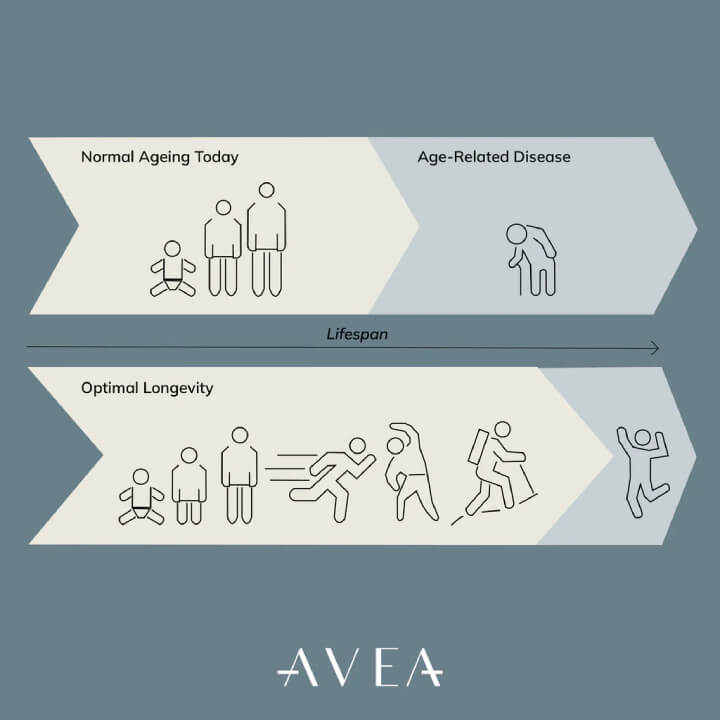
While lifespan is the number of years we live, our healthspan represents the number of years in which we are in a state of good health and free of disease. Increasing our health span becomes increasingly important as lifespan increases.
Biological age
Your chronological age is the total number of years you’ve been alive. Simply a passport number, it provides no insights into your actual health, or when health might deteriorate. Your biological age, on the other hand, is the true reflection of how your internal environment is keeping up with time.

Whilst chronological age increases at the same rate for everyone, biological age does not.
Your biological age is mainly affected by:
- genetics
- diet
- exercising
- sleeping patterns
- stress
- pollution
You can reverse your biological age
Growing old doesn’t need to be painful. Prioritising health and implementing certain lifestyle modifications, can help reduce biological age and potentially reverse signs of ageing.
Today, we can envision a future where people can live well into their 60s, 80s or even 100s, without the fear of debilitating diseases like diabetes, cancer or dementia.
Your DNA has the answers
Waiting for a cultural shift to allow ageing to be fully embraced is not an effective strategy for change. Instead, customised healthcare increases understanding of one’s ageing process, and helps promote optimal longevity.
Measure your biological age
Turns out your chronological age is really just a number. What’s your ”actual” age? Discover your biological age and obtain customised insights to increase your healthspan.
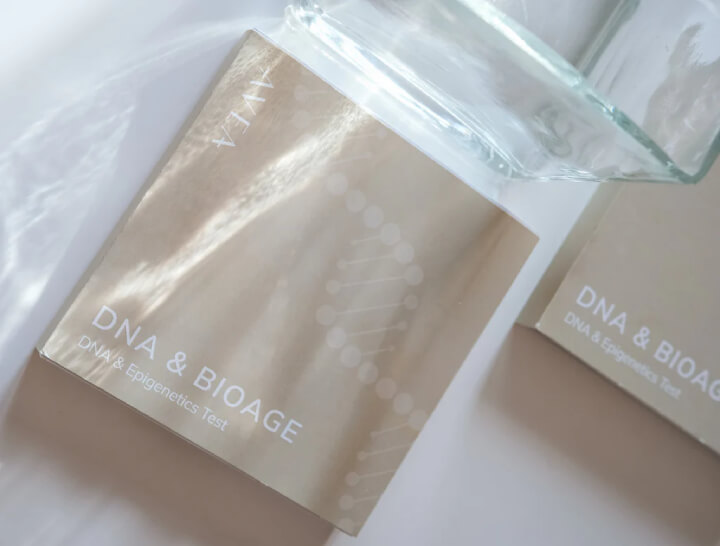
Your biological age can be lower than your chronological age.
Increasing healthspan allows for:
- Personal fulfilment: More time to pursue personal interests and goals.
- Social benefits: More experience and wisdom to society, contributing to cultural and intellectual capital.
- Greater economic stability and growth: Increased and healthier workforce.
- Scientific and medical advancements.
- Collective Workforce: More ability to work towards sustaining the health of Earth.
Future goals
Life is not oriented around a relentless process of decline. Stages of being the victim, burden, dependent, controlling or simply restricted to a caretaker– need not be the normal part of ageing. The most crucial questions to be asked when trying to understand ageing is:
- How do we age?
- What do we know about ageing and why do we know in the way we do?
- How does this specific knowledge affect our perception of our capabilities?
Knowledge constantly passed down from generations to generations is embedded in social practices and temporalities, but also from a cultural perspective. It is simply mediated by socially accumulated artefacts and social realities. Currently, one can confidently say that age reversal is no longer science fiction but a knowledge to be spread around.






